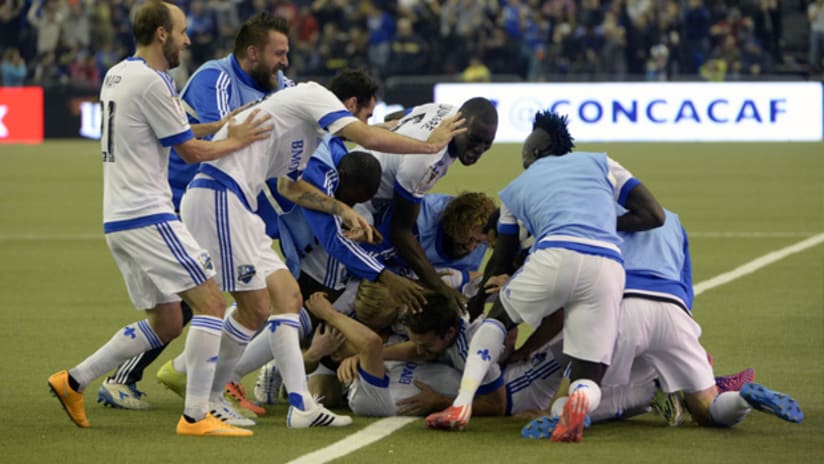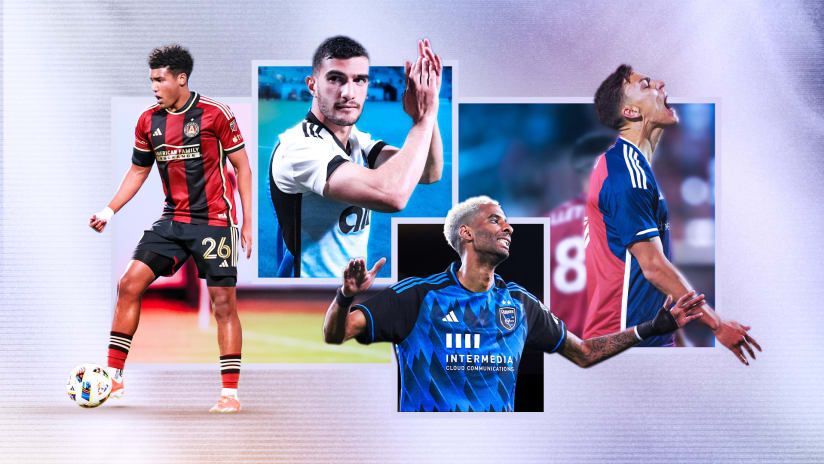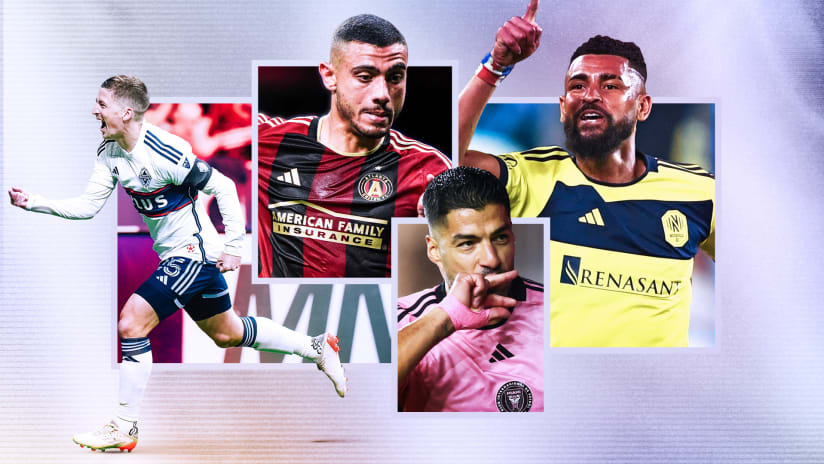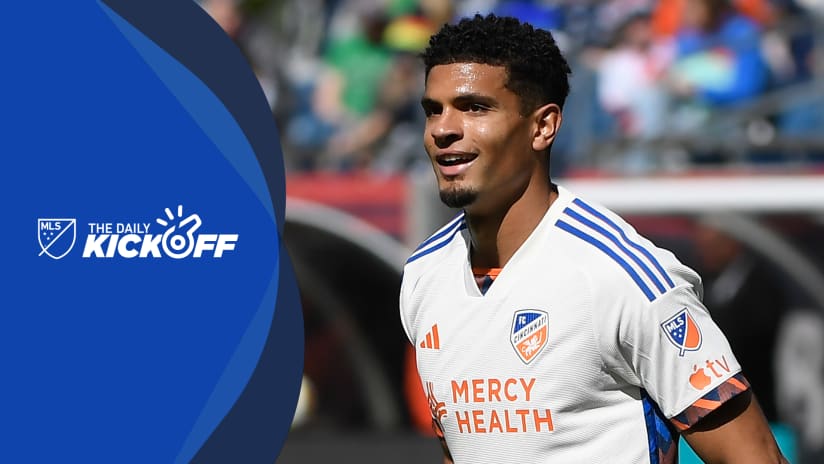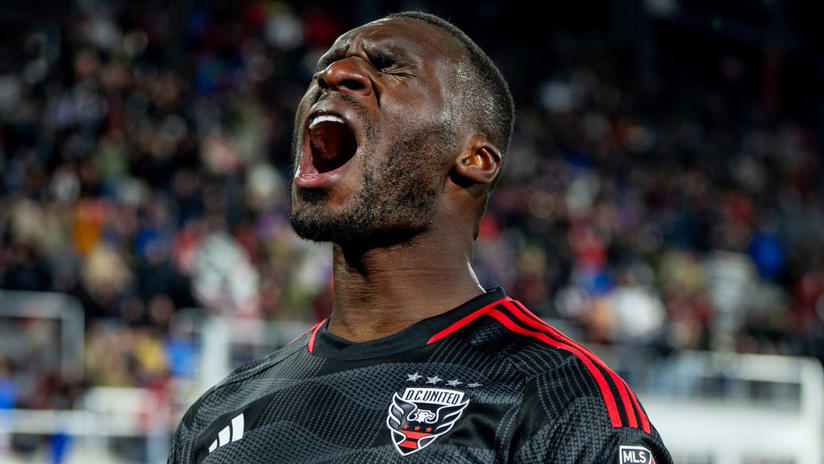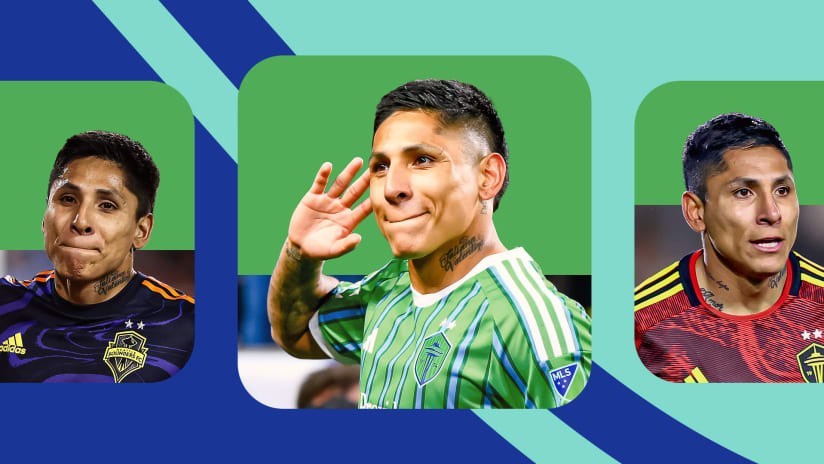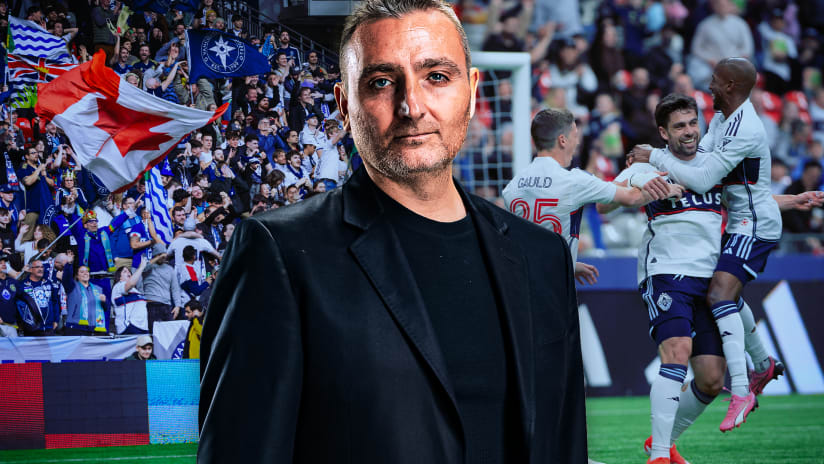As the cliché goes, 2-0 is the most dangerous scoreline.
Montreal were reminded of that last Saturday. Up 2-0 after 27 minutes of play at home to Orlando City, they conceded two in two minutes and settled for a 2-2 scoreline. “It’s a good lesson to learn for everything,” head coach Frank Klopas said.
It’s a convenient lesson in these circumstances. The Impact are four days away from the biggest game in their history, the second leg of their CONCACAF Champions League semifinal tie at Alajuelense, next Tuesday. And they’re up 2-0 from the home leg.
To date, 46 home-and-away series have been completed in the CCL knockout stage since the competition underwent a makeover in 2008. In 22 of those, the team that hosted the first leg won it. But only nine times out of 22 did that team win the series.
Before the Impact’s defeat of their Costa Rican opponents, only six teams had won a first leg by two goals at home. MLSsoccer.com jumped into the CCL time machine and revisited those results to get an idea of what history says about the Impact’s chances of qualifying for the final.
2011-12 Final – Monterrey 2-0 Santos Laguna, Santos Laguna 2-1 Monterrey (Monterrey win 3-2 on aggregate)
In the first 90 minutes, Monterrey got themselves in a good position to make it two CCL final wins in a row – actually, Humberto Suazo did. The 2-0 win was all Suazo’s. His first finish, off an Aldo de Nigris cutback from the right, was fine, but the late second tally was miraculous. Suazo beat four players, fought off a fifth and fired a low shot home from inside the box.
The second leg was a lesson in not giving up. Santos Laguna fought to claw their way back into the series, putting goalkeeper Jonathan Orozco under pressure throughout the opening 45 minutes and forcing him into several saves. Daniel Ludueña finally beat him just before the break, and Oribe Peralta added the series equalizer in the 51st minute. But Monterrey proved that they, too, were tenacious. Turning the intensity up a notch, they found the crucial third goal through Neri Cardozo eight minutes from full time and lifted the trophy again.
2010-11 Semifinals – Real Salt Lake 2-0 Saprissa, Saprissa 2-1 Real Salt Lake (RSL win 3-2 on aggregate)
To think, RSL’s first leg advantage could have been 3-0, had Nat Borchers’ early header not been (wrongly?) disallowed for a foul. Still, Real Salt Lake felt comfortable with the 2-0 win, courtesy of Alvaro Saborio's and Fabian Espindola's low strikes from outside the box.
In Costa Rica for the second leg, Real Salt Lake held strong in the first half but conceded early in the second – a blast from Luis Cordero. But Jamison Olave replied 15 minutes later, scoring with a scissor kick on a corner. Ned Grabavoy gave up a penalty that Alonso Solis converted in the 87th minute, but Real Salt Lake qualified for the final – which they lost to Monterrey.
2010-11 Quarterfinals – Cruz Azul 2-0 Santos Laguna, Santos Laguna 1-3 Cruz Azul (Cruz Azul win 5-1 on aggregate)
Two somewhat fortunate goals from Javier Orozco – he scored with his shoulder – and Christian Giménez (the goalkeeper got a hand to Giménez’s attempt, which bounced into the net anyway) gave Cruz Azul the home win in the first leg.
They left nothing to chance in the away leg. Cruz Azul countered efficiently in Torreón and extended their lead before halftime when Emanuel Villa volleyed a cross in. Another Giménez goal, on a 2-v-0, followed after the break, and Villa made it 5-0 on aggregate minutes later. Giménez then got sent off for a second booking, but the damage had been done. Christian Benítez headed in a consolation goal for Santos Laguna in the 71st, and Cruz Azul made it to the semis.
2009-10 Quarterfinals – Marathón 2-0 Pumas UNAM, Pumas UNAM 6-1 Marathón (Pumas win 6-3 on aggregate)
In the first leg, a tug of the jersey and a silly handball gave Marathón two penalty kicks that Walter Martínez and Carlos Mejía converted for an upset win over Pumas. It only served to awaken the beast for the return leg.
Marathón conceded a superb first to Pablo Barrera three minutes in and lost their advantage outright in the 22nd minute when Ismael Íñiguez's free header hit the back of an empty net. And it only got worse. Pumas won the second leg 6-1, and Marathón didn’t even score their goal themselves; goalkeeper Alejandro Palacios’ attempt to trap a long backpass failed, and defender Jehu Chiapas was credited with the own goal.
2008-09 Semifinals – Puerto Rico Islanders 2-0 Cruz Azul, Cruz Azul 3-1 Puerto Rico Islanders (3-3 aggregate, Cruz Azul win penalty shootout 4-2)
Countless chances went begging for Cruz Azul in the first leg, while the Islanders scored four minutes in and added a set play goal eight minutes from halftime. Three weeks later, in the 31st minute of the second leg, Cruz Azul appeared to dig their own grave when Cristian Riveros picked up surely one of the daftest red cards in the history of the competition – for sliding into goalkeeper Bill Gaudette, who was casually picking up the ball near the end line.
Yet Pablo Zeballo’s fantastic goal from outside the box spurred Cruz Azul on, and Javier Orozco found the equalizer six minutes from the end of the second half. Extra time saw Sandy Gbandi give Puerto Rico the lead on a screamer, only for César Villaluz to lob Gaudette with a header seven minutes later. In the penalty shootout, Orozco roofed the winning kick for Cruz Azul. They went on to lose the final to Atlante.
- Get the latest Montreal news at ImpactMontreal.com
2008-09 Quarterfinals – Montreal Impact 2-0 Santos Laguna, Santos Laguna 5-2 Montreal Impact (Santos Laguna win 5-4 on aggregate)
That one, Montreal fans don’t want to read about any more. So let’s give you the choice to relive it -- or not.
---
There you have it. The first three teams to have won a first leg 2-0 at home, in the history of the tournament, did not progress. The last three did.
Is this trend carrying on? It may, and perhaps there are a few lessons to be learned from those matches: The tie is far from over even when the opposition score two of their own – or when they do something stupid. A set play goal can go a long way, and don’t flinch if your opponents come out like lions – or Pumas.

